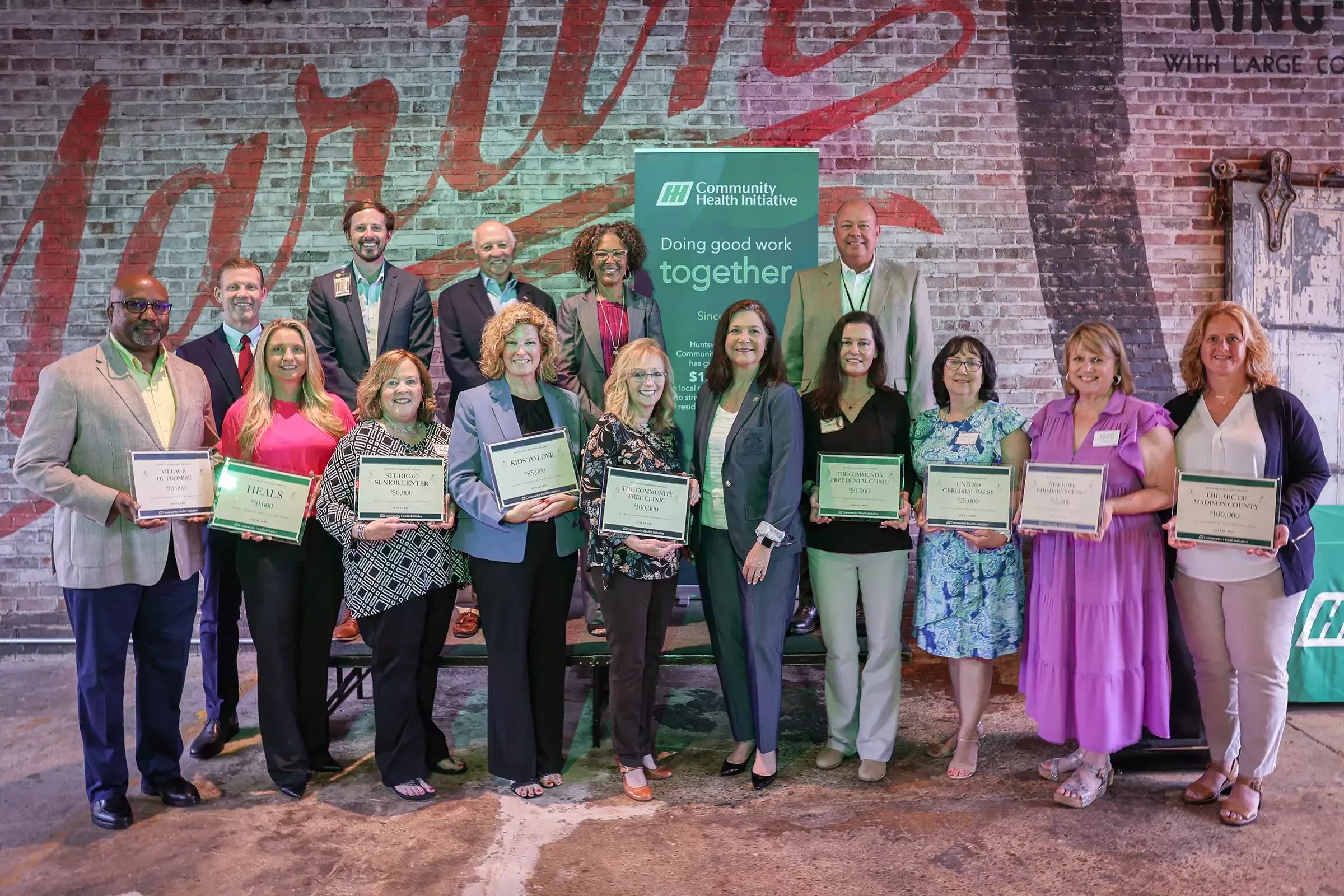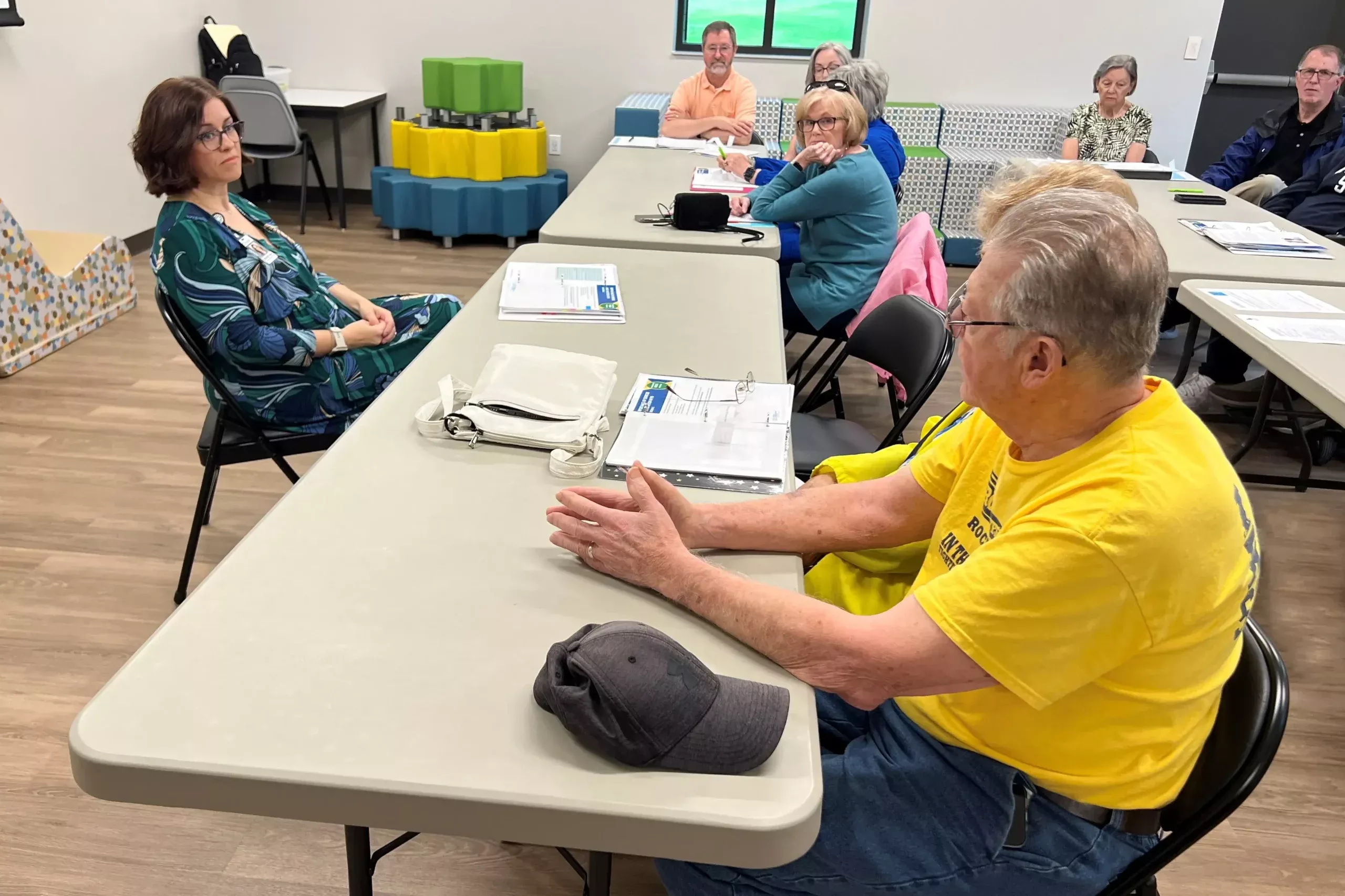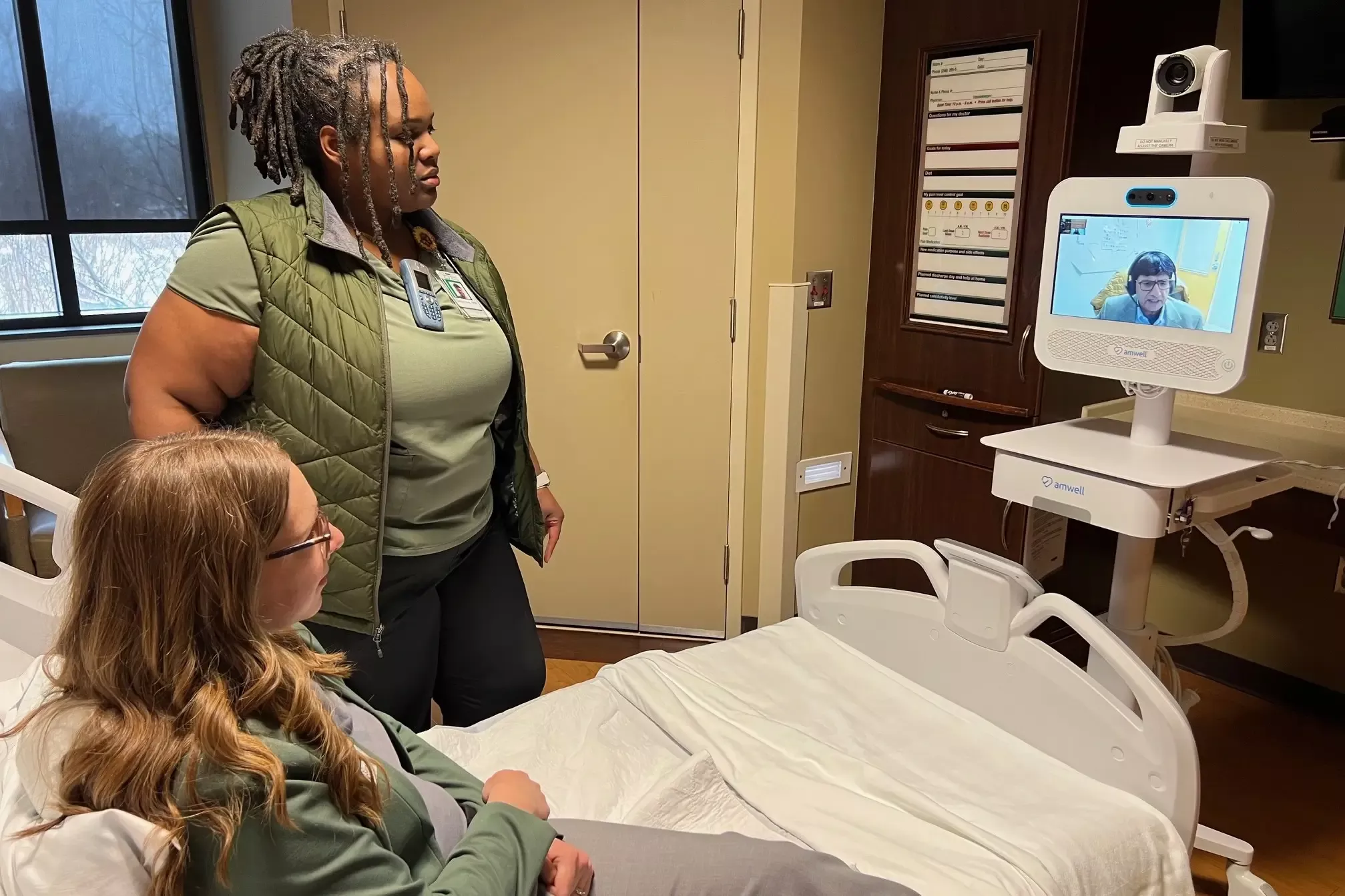
For the 27th year in a row, Huntsville Hospital’s Community Health Initiative (CHI) is providing vital financial support to local not-for-profit agencies working to improve lives in Madison County.
During a June 14 ceremony at Stovehouse, CHI presented health grants totaling $600,000 to 10 organizations dedicated to improving the health of underserved populations – from homeless adults and foster children to homebound seniors and those living with Parkinson’s disease.
Counting this year’s grant awards, CHI has now provided more than $13 million to health-focused not-for-profit agencies since 1996.
“Huntsville Hospital’s mission is to improve health, but we can’t do it alone,” said Kerry Fehrenbach, who chairs CHI as well as the Jean Wessel Templeton Committee which oversees the program. “By working together with local not-for-profit agencies, we are better able to reach children, low-income families, and any segment of the community which has challenges accessing care.”
CHI grants provide funding for a variety of purposes, including primary care, dental care, and mental health services for persons of all ages. In addition, there is also support for medication assistance and health prevention services.
This year’s CHI grant award recipients are:
Kids to Love is a first-time CHI grant recipient. Founded by former TV news anchor Lee Marshall, Kids to Love provides free clothing, school supplies, Christmas gifts, job training and other assistance to foster children as well as young adults aging out of foster care.
The $85,000 CHI grant will help provide staff training and trauma treatment services at Kids to Love’s new Smith Family Wellness Center in Madison. “Regardless of what led them into foster care, all foster children deal with trauma,” said Marshall. “What our team is able to do now is treat the trauma, not just put a Band-Aid on it, so our kids can truly get past their past. We are so honored to receive this CHI money and be able to do this for our kids and families.”
The Arc of Madison County, which advocates for people with intellectual and developmental disabilities, plans to use its $100,000 Community Health Initiative grant to provide more Autism Spectrum Disorder diagnostic testing services for low-income children. Executive Director Susan Klingel said private clinics that offer autism testing tend to be expensive and have long waiting lists.
“With this support from CHI, we’re going to be able to test more than 110 children,” Klingel said. “It’s going to change the trajectory of life for these families. The first few years of life is a period when the brain is maximally malleable. The younger (a child is diagnosed with autism), the better. Early intervention is extremely successful at helping children with autism reach their potential.”


